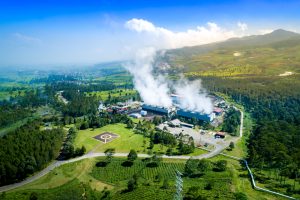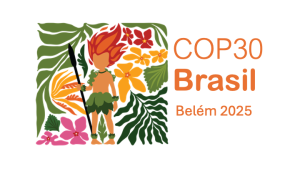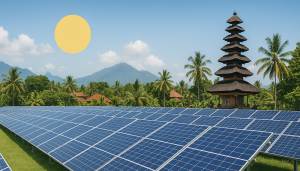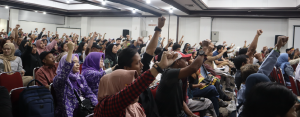Jakarta – The Norwegian government has granted Indonesia USD 216 million in funding as part of a cooperation agreement on forest protection and results-based emission reduction (RBC). According to the Ministry of Forestry, this support is part of international assistance for Indonesia’s commitment to reducing carbon emissions.
On Thursday, August 28, Minister of Forestry Raja Juli Antoni said that the funding was a form of recognition for Indonesia’s achievement in reducing emissions by 43.2 million tons of CO₂ during the 2016–2020 period.
“This is not only financial support, but also global recognition of Indonesia’s seriousness in protecting forests and reducing emissions,” said Raja Juli Antoni when launching the Fourth Phase of the RBC Investment Plan in a written statement.
The funds provided by Norway will focus on preventing deforestation and forest degradation, expanding land rehabilitation efforts, enhancing biodiversity conservation, and restoring peatland ecosystems.
“FOLU Net Sink 2030 is a vital sector to support the Paris Agreement and our emission reduction targets in accordance with NDC (Nationally Determined Contribution), which is 31.89% independently and 43.20% with international support,” said Raja Juli.
This Norwegian support was also confirmed by Kristian Netland, Minister Counsellor representing the Norwegian Embassy in Indonesia. According to him, this cooperation is clear evidence of the strategic collaboration between the two countries in addressing the climate crisis.
“Indonesia plays a key role as the owner of the world’s largest tropical forest. Norway believes this partnership will contribute significantly to global efforts to reduce emissions,” said Netland.
In addition to RBC, the Indonesian government, through the Environmental Fund Management Agency (BPDLH), also launched the Third Period of the Community Fund for the Environment (Small Grant) Service, with an allocation of Rp5-6 billion. This program is intended for forest farmer groups, NGOs, and environmental activists who submit forest and land conservation initiatives through the official BPDLH service portal.
The Managing Director of BPDLH, Joko Tri Haryanto, said the importance of community involvement in protecting forests.
“We channel this funding directly to the grassroots level. From independent forestry extension workers to farmer groups and local institutions, everyone can play an active role. In this way, the 2030 FOLU Net Sink target will be more evenly distributed and equitable,” explained Joko.
Since its launch in 2024, this small grant program has distributed over IDR 12 billion to 383 beneficiaries across Indonesia. The grant funds support various concrete actions, ranging from forest revegetation and water management in peatlands to community-based conservation activities.
This Indonesia-Norway cooperation is expected to continue until 2030, in line with Indonesia’s Golden Indonesia 2045 vision and its commitment to Net Zero Emissions by 2060. Raja Juli concluded his remarks by emphasising the importance of balance between ecology, economy, and society.
“We must ensure that efforts to reduce emissions not only protect the environment, but also improve the welfare of the community,” she said. (Hartatik)
Banner photo: Image generated by OpenAI’s DALL·E via ChatGPT (2024)















